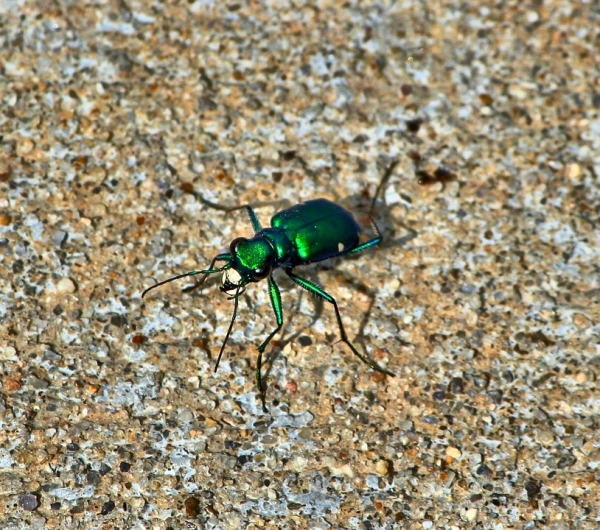The success of North American crops from corn to Christmas trees partly depends on a relatively invisible component of the food web — ground beetles. Nearly 2,000 species of ground beetle live in North America. New research led by Penn State shows that some of these insects could thrive while others could decline as the climate changes. The team found that the response will largely depend on the species’ traits and habitats and could have significant implications for conservation efforts.
“We know that climate change influences everything from coral reefs in the ocean to trees on land, but there’s less information available on how it affects insects,” said Tong Qiu, assistant professor of multifunctional landscapes at Penn State. “Ground beetles are everywhere — in your backyard, in your garden. They eat the pests and weed seeds that damage crops and are important food sources for birds. They are small insects, but they have large ecosystem impacts.”
The idea for the project came after Qiu and his colleagues read two studies with diverging findings. Both studies looked at the trends of insect population by aggregating the findings of existing literature, with one study showing a decline in terrestrial insect populations over the past 100 years and the other showing no change. Qiu and his collaborators wondered what the picture would look like if they examined species as a group, or “community,” but allowing for their differing traits, using raw data that were collected across the continent.
Read more at Penn State
Photo Credit: JamesDeMers via Pixabay


